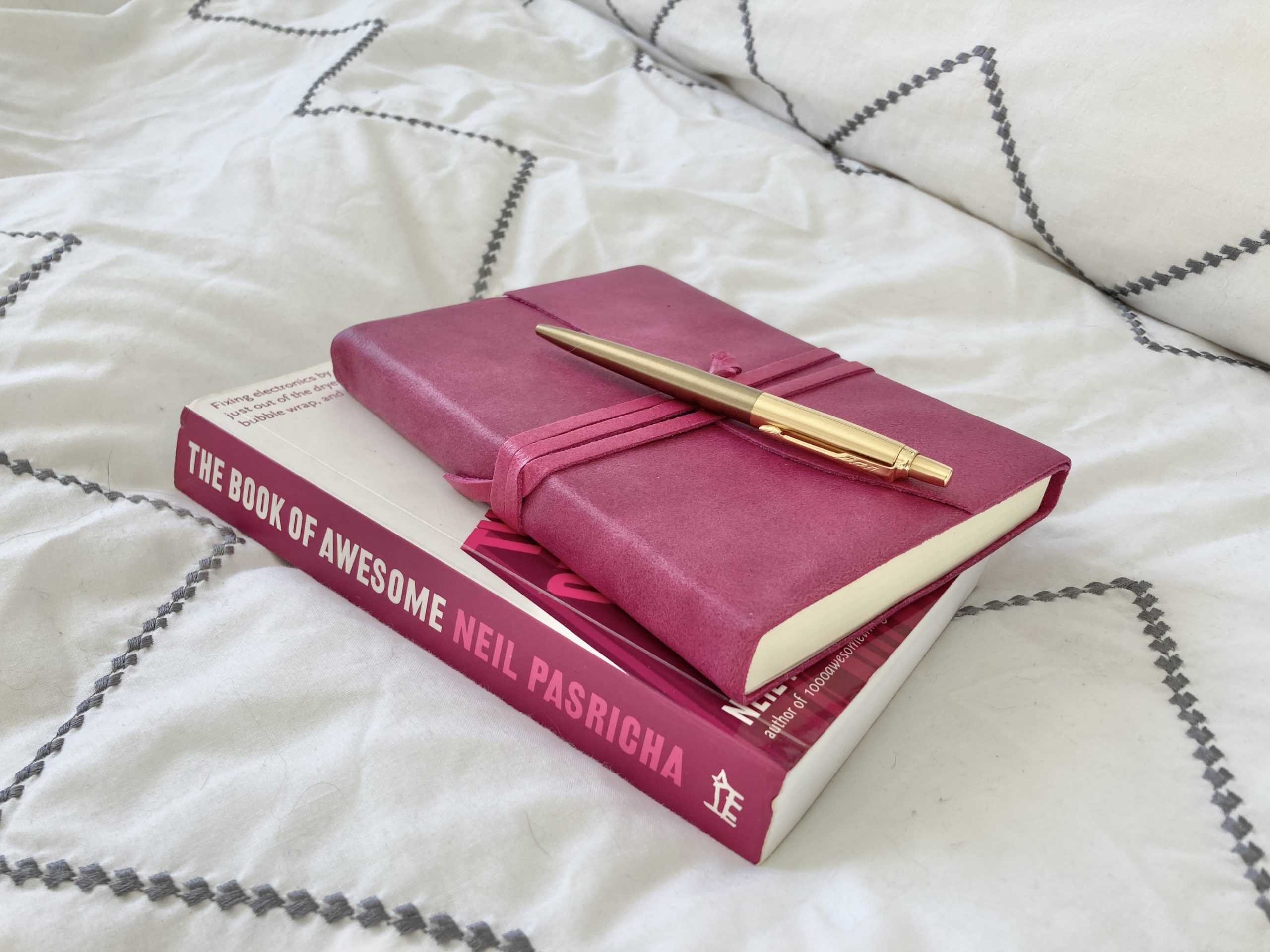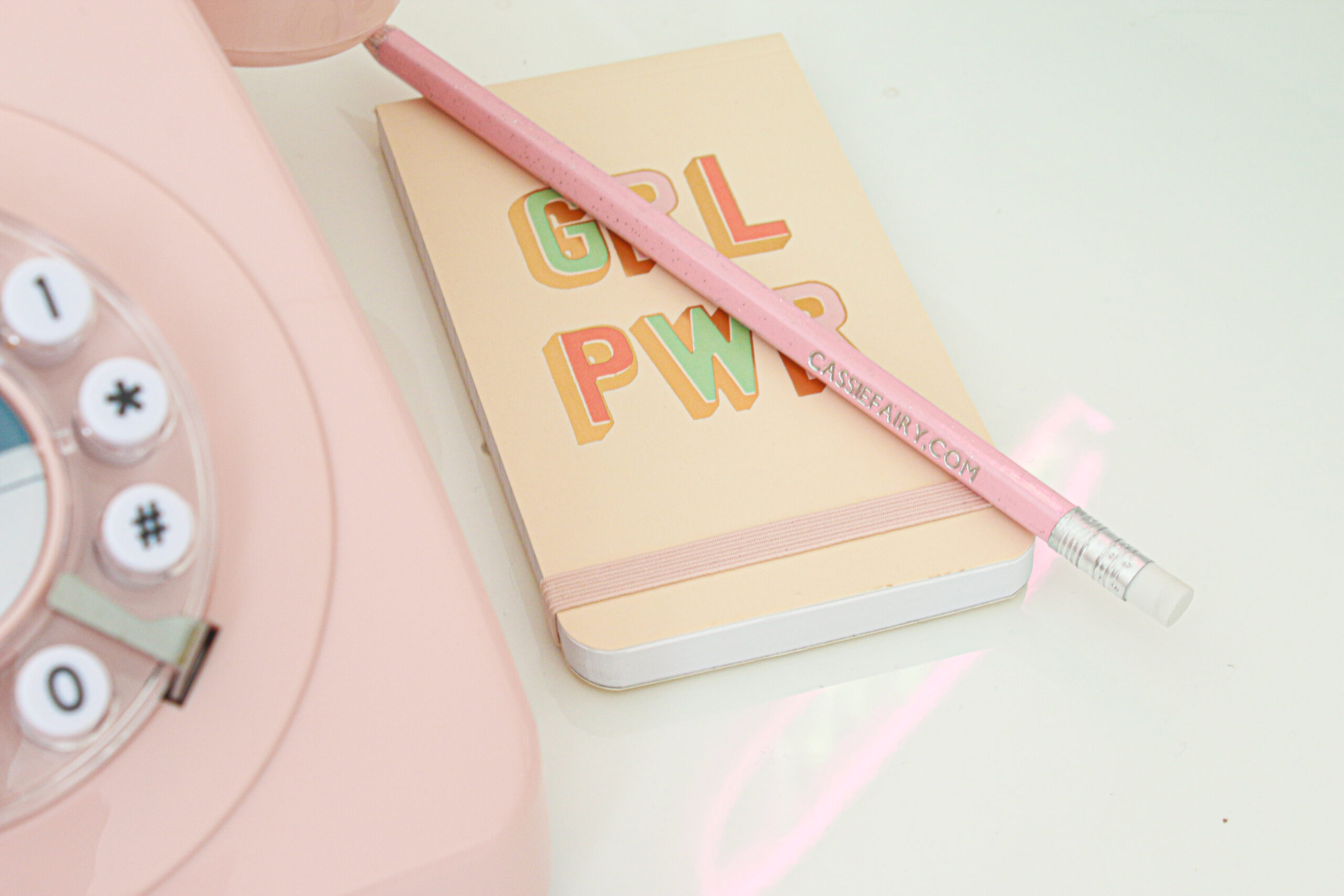If you’re a little down during the darker days of winter, are feeling anxious, have been having trouble sleeping or simply need some more ‘me time’, journaling can help. It’s a great idea to focus on self-care at this time of year and, if you haven’t already been keeping a journal, that’s one of the easiest ways to look after your mental wellbeing during the gloomy winter months. Here’s how:

One of the things I love to do at the start of the year is to get a new journal. It’s a bit of treat to choose a fresh new notebook with quality paper and a pretty cover. In fact, you could call that step one of your self-care journey – take the time to pick out your dream journal with a lovely binding. I prefer a small book that’s comfortable to hold and has a tactile finish, like this leather journal that was kindly gifted to me by Pen Heaven last year.
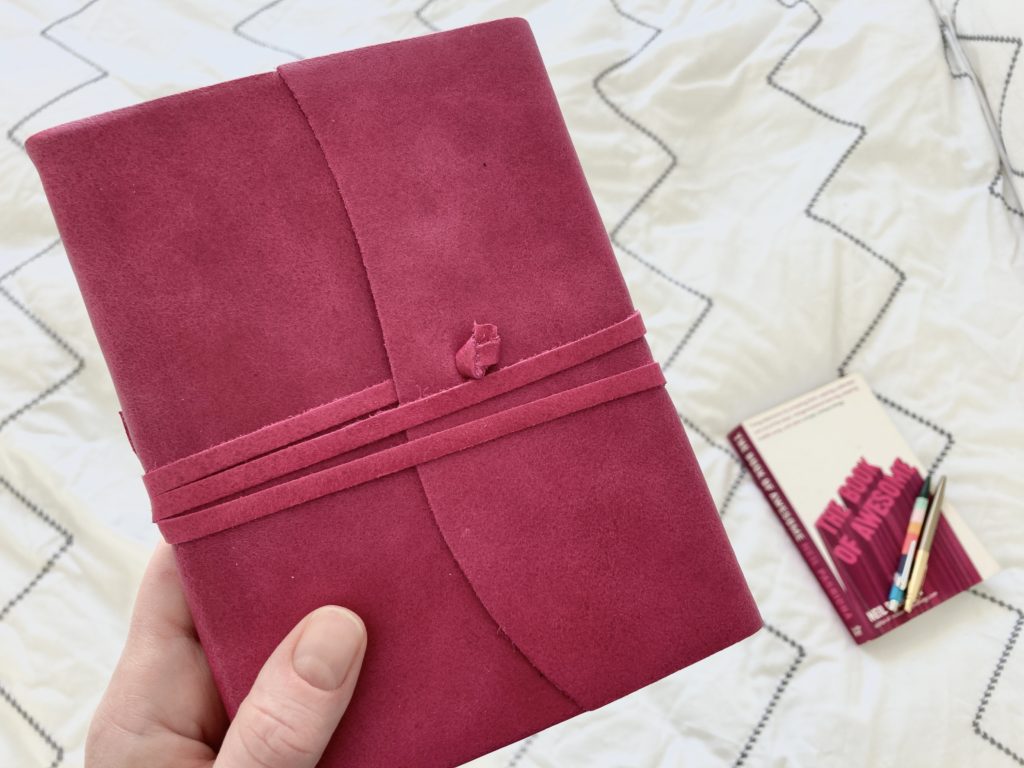
To get you started on your journaling journey, I’ve previously shared 12 journaling prompts to help you overcome the ‘blank page fear’ of a new journal, so be sure to check out that blog post too. Scribbling out worries or lists at night-time can help you to sleep – which is so important to your wellbeing – but that’s not the only time you can write in your diary…
MORNING PAGES
Keeping a morning journal is one of the 10 daily self-care activities recommended by counselling professionals. Writing down your thoughts and feelings in the morning ensures a slow start to the day and helps you to release any anxiety you’re feeling about the day ahead. The key here is to give yourself time, so wake up earlier than you need to so that you don’t feel rushed while writing your morning pages.
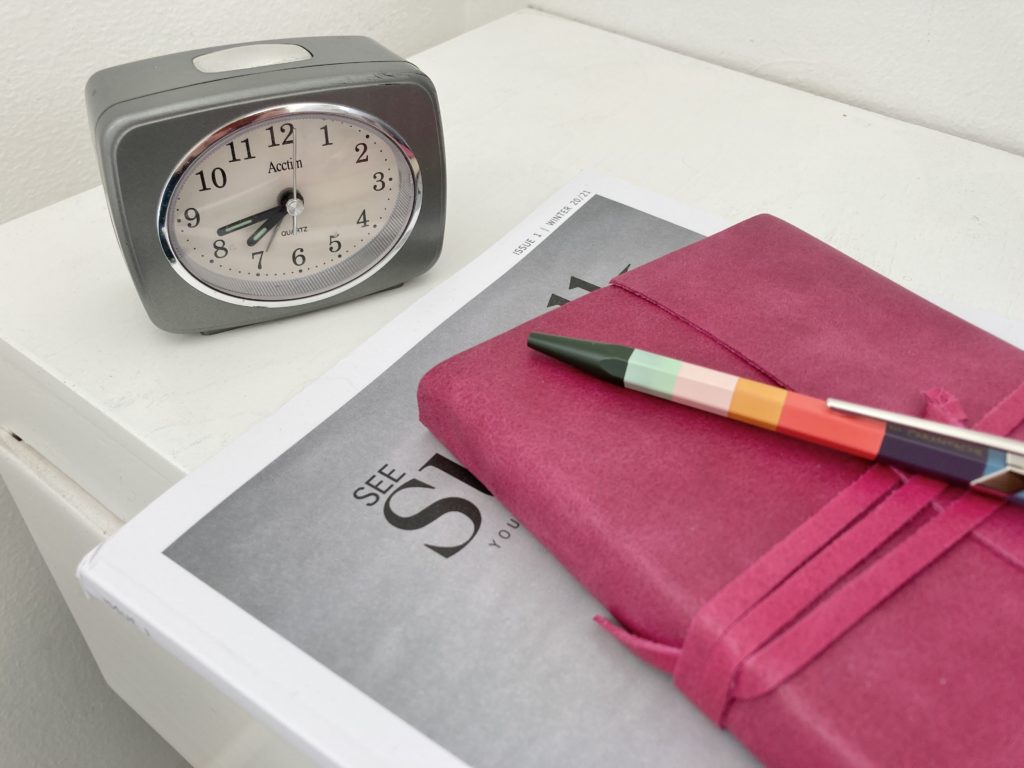
There are no rules about what you can or can’t write – just go with the flow and see what comes out when you put pen to paper. You could even use the time to write down the dreams you had the night before to help you understand any subconscious issues that come up. Writing like this at the start of the day can really help you to learn more about yourself and inform any changes you’d like to introduce into your life.

GRATITUDE DIARY
When you’re journaling, one sure-fire way to feel better is to write about things you are grateful for. Even if you think nothing is going right and you’ve not got much to be happy about, I bet you can find something to add to your gratitude diary. You can write it one long list – just keep adding items when you think of them and you’ll be amazed at how many things you can feel thankful for – from your pet cat to the air you breathe. The list itself can make you feel more grateful when you look back over it in the future.
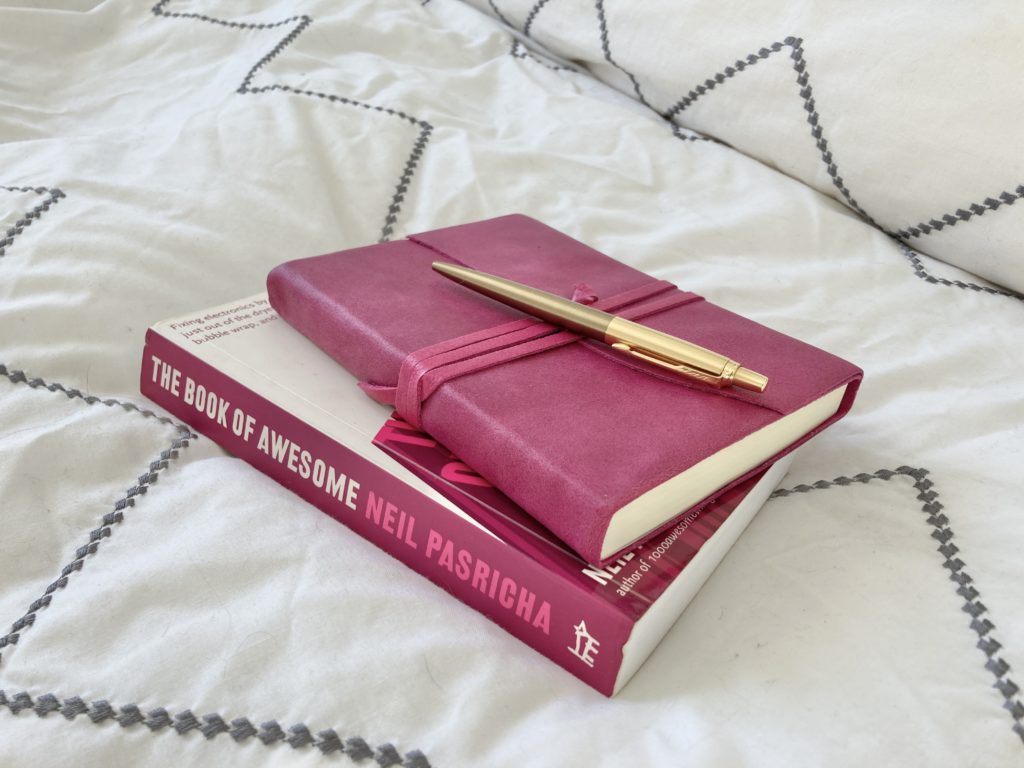
Alternatively, you can write longer pages and add specific details about the things you are grateful for. I’ve been reading The Book of Awesome by Neil Pasricha this month and I like the in-depth way he discusses lots of awesome moments, things and experiences. Again, it’s lovely to read back over your gratitude diary after a few days or weeks to remind yourself what good things have been going on.
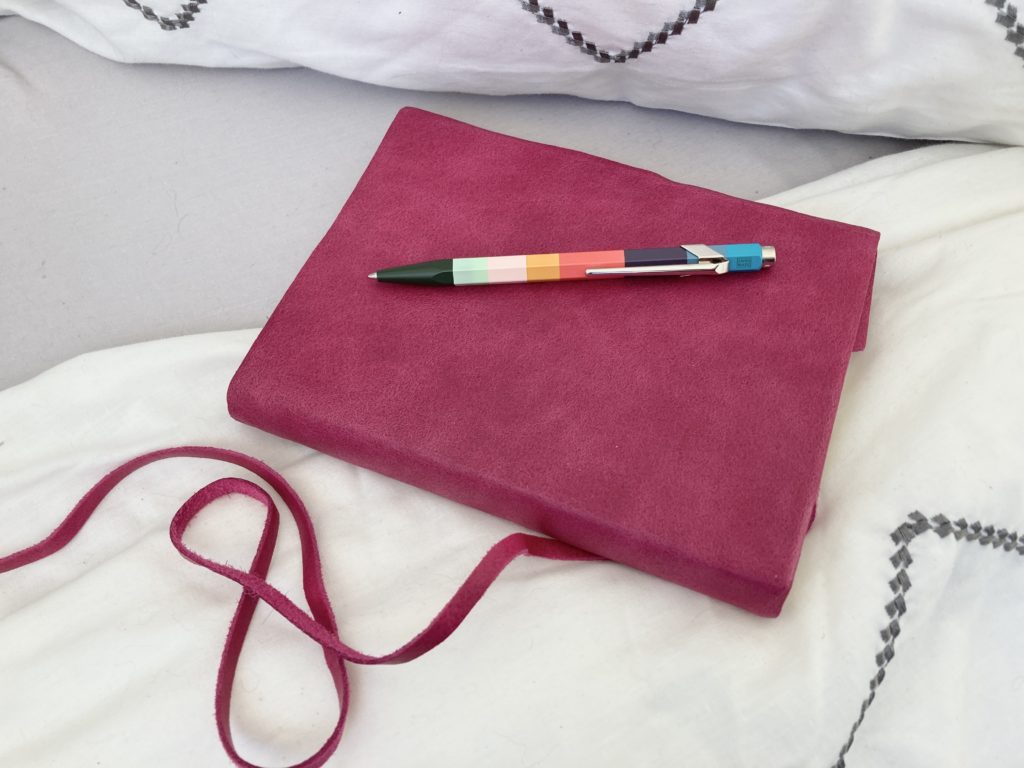
Personally, I like to write down at least one thing I’m grateful for when I go to bed at night. It might be something that happened during the day or something simple like how much I enjoy a cup of tea. Just a few words is enough and even if you can think of anything particularly outstanding, if you think about it, you’ll find something you can be thankful for. I inevitably end up finding multiple things to write about each day and, again, it’s lovely to look back on such happy memories after a few months or even years.
THERAPEUTIC WRITING
Rather than using your journal as a diary to record your daily life, you can always use it for therapeutic purposes whenever you feel the need. Writing down your thoughts and feelings to can help you to feel better about your worries or experiences – simply the act of putting it down on paper gives your thoughts less power. You can look back over your writing at a later time when you feel better able to deal with the situation and you can use it for dialectical therapy purposes.
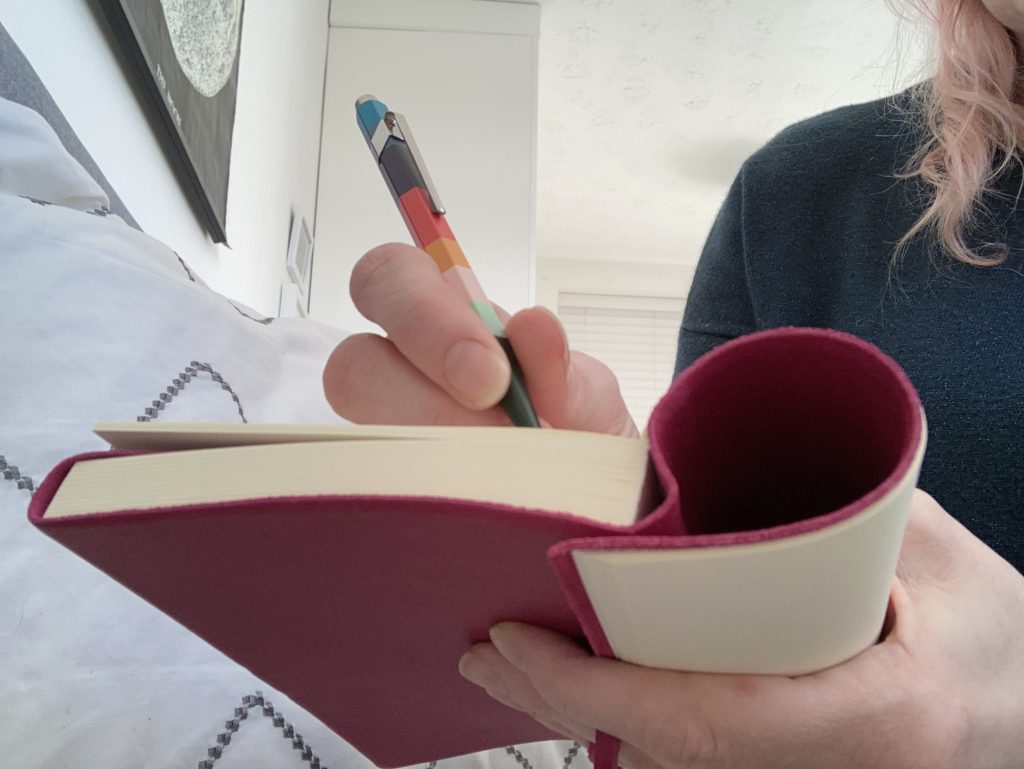
Dialectical thinking splits feelings into primary and secondary emotions so getting those gut-feeling emotions down on paper gives you a great starting point to analyse your response to a situation in a non-judgemental way. It allows you to reflect on your emotions before acting on them, such as journaling about an event that made you angry rather than having an argument. It allows you the time and distance to feel rational rather than emotional and can help you make better decisions for the future.
JOURNALING AS A METHOD OF SUPPORT
Writing in a journal on a regular basis can also act as a support system for a number of different mental health rehabilitation methods too. When you’re able to process your thoughts in a logical and confident way, you will be much more in touch with your emotions which can help with anything from cognitive behavioural therapy to alcohol rehab programmes or any other addiction recovery. Having a journal on hand is a great way to express your emotions on paper and make sense of how you’re feeling at any given time.
Whether you’re writing down your thoughts at night time or as soon as you wake up in the morning, it’s an empowering feeling to know exactly what to do with them. As soon as you start to make progress and improvements in your life, you will also be able to look back on your journal and take note of just how far you have come over the months and years. Journaling is not only a method of support, but it’s also hugely rewarding too.
I hope today’s blog post has given you some ideas for ways that you can include journaling in your daily life and how it may benefit your mental health too. Please let me know how you like to use our diary in the comments below as I’d love to hear more suggestions about writing for wellbeing
PIN IT FOR LATER
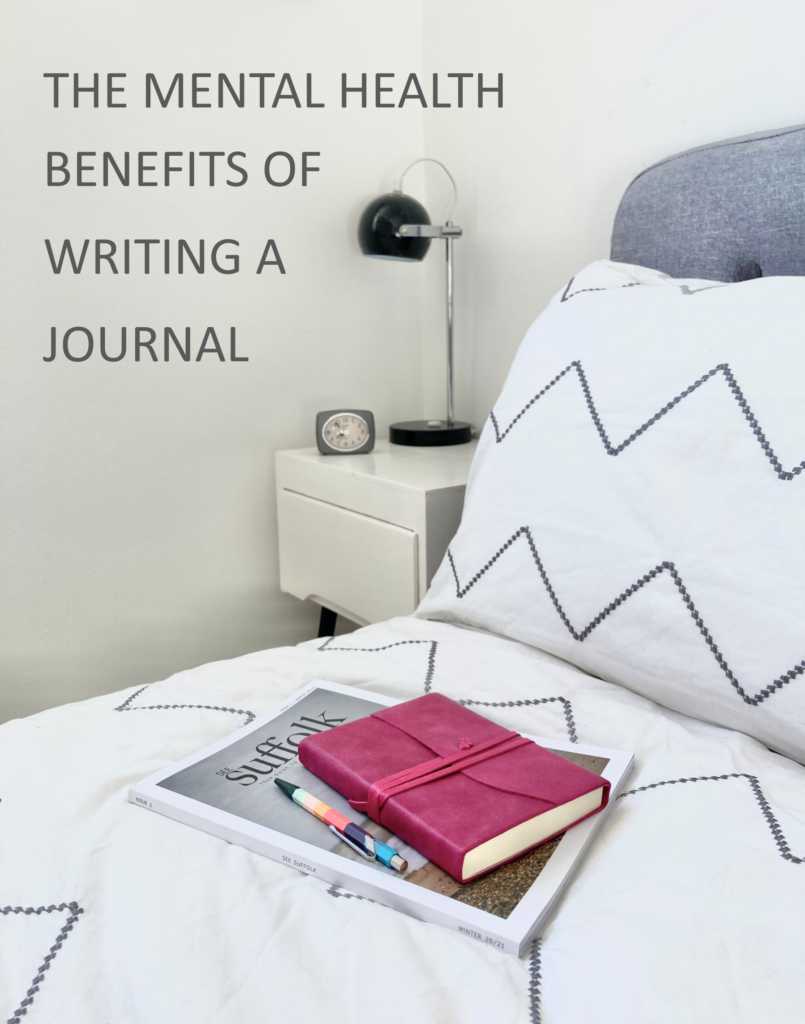
This article is a sponsored collaboration. The pink links in the content indicate a sponsored link or information source. The blog post reflects my own experience and the sponsor hasn’t had any control over my content 🙂


















